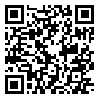Volume 17, Issue 7 (2015)
JAST 2015, 17(7): 1735-1742 |
Back to browse issues page
Download citation:
BibTeX | RIS | EndNote | Medlars | ProCite | Reference Manager | RefWorks
Send citation to:



BibTeX | RIS | EndNote | Medlars | ProCite | Reference Manager | RefWorks
Send citation to:
Tahmasbi G, Kamali M A, Ebadi R, Nejati javaremi A, Babaei M, Gharadaghi A A et al . Genetic Trends and Parameters of Honey Production, Swarming and Defense Behavior in Iranian Honeybee (Apis mellifera meda) Colonies. JAST 2015; 17 (7) :1735-1742
URL: http://jast.modares.ac.ir/article-23-3184-en.html
URL: http://jast.modares.ac.ir/article-23-3184-en.html
Gh. Tahmasbi  1, M. A. Kamali2
1, M. A. Kamali2  , R. Ebadi3
, R. Ebadi3  , A. Nejati javaremi4
, A. Nejati javaremi4  , M. Babaei2
, M. Babaei2  , A. A. Gharadaghi5
, A. A. Gharadaghi5  , R. Bahraini1
, R. Bahraini1 
 1, M. A. Kamali2
1, M. A. Kamali2  , R. Ebadi3
, R. Ebadi3  , A. Nejati javaremi4
, A. Nejati javaremi4  , M. Babaei2
, M. Babaei2  , A. A. Gharadaghi5
, A. A. Gharadaghi5  , R. Bahraini1
, R. Bahraini1 
1- Department of Honeybee, Animal Science Research Institute of Iran, Karaj, Islamic Republic of Iran.
2- Department of Animal Breeding., Animal Science Research Institute of Iran, Karaj, Islamic Republic of Iran.
3- Department of Plant Protection, College of Agriculture, Isfahan University of Technology, Isfahan, Islamic Republic of Iran.
4- Department of Animal Science, Tehran University, Karaj, Islamic Republic of Iran.
5- Department of Biotechnology, Animal Science Research Institute of Iran, Karaj, Islamic Republic of Iran.
2- Department of Animal Breeding., Animal Science Research Institute of Iran, Karaj, Islamic Republic of Iran.
3- Department of Plant Protection, College of Agriculture, Isfahan University of Technology, Isfahan, Islamic Republic of Iran.
4- Department of Animal Science, Tehran University, Karaj, Islamic Republic of Iran.
5- Department of Biotechnology, Animal Science Research Institute of Iran, Karaj, Islamic Republic of Iran.
Abstract: (8140 Views)
Genetic parameters were estimated in a base and closed population of Iranian honeybee colonies. Data were obtained on 500-700 Iranian native population of honeybee colonies (honeybee breeding project in central region of Iran) subject to 9 successive generation of selection. These populations had been selected for honey production, swarming behavior, and defense behavior. Heritability of honey production, swarming behavior, and defense behavior were 0.22, 0.34, and 0.44, respectively. Phenotypic and genetic correlations between honey production with swarming tendency and defense behavior were -0.16, -0.59, and 0.21, 0.48, respectively. Phenotypic and genetic correlations between swarming and defense behavior were -0.52 and -0.67 respectively. The genetic and phenotypic trends of swarming behavior, defense behavior, and honey production in the honeybee colonies during the 1999-2009 were desirable. Lower heritability of honey production and its higher dependence on apiary management and environmental or climatic factors caused lower improvement of honey production in breeding plans.
Article Type: Research Paper |
Subject:
Agricultural Entomology
Received: 2013/07/10 | Accepted: 2015/06/24 | Published: 2015/12/1
Received: 2013/07/10 | Accepted: 2015/06/24 | Published: 2015/12/1
| Rights and permissions | |
 |
This work is licensed under a Creative Commons Attribution-NonCommercial 4.0 International License. |






